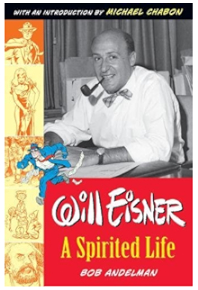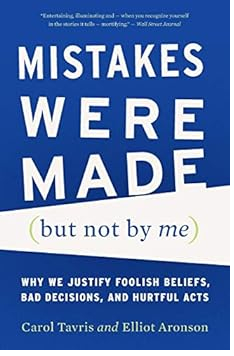Will Eisner’s Memory is a Cartoon (and so is yours)
The Eisners, the comic book industry’s equivalent of the Oscars, is named after Will Eisner, arguably the most highly regarded U.S. comics artist of the twentieth century. Eisner also has the distinction of appearing as a witness in the first comic book lawsuit. According to the 1940 decision reached in Detective Comics, Inc. v. Bruns Publications, Inc., one of Eisner’s first creations, Wonder Man, published by Victor Fox’s comics company, infringed on DC’s copyrighted Superman.

Eisner agreed with the verdict, telling his biographer Bob Andelman: “Victor described the character exactly the way he wanted him in a handwritten memo. Obviously, a complete imitation of Superman.” Andelman continues that Eisner “decided that he couldn’t commit perjury and, when called to the witness stand, he testified that Fox literally instructed Eisner & Iger to copy Superman.”

Andelman published Will Eisner: A Spirited Life in 2015, a decade after the artist’s death. Though we don’t know the date Eisner reported his account of the court scene, it was likely more than a half century after the event.
Eisner also gave interviewer John Benson a similar account in 1979: “when I did get on the stand and testified under oath, I told the truth, exactly what happened.” Eisner’s 1985 graphic novel The Dreamer includes a thinly veiled fictional account of the court scene too.

When the prosecutor asks, “Did he specify the nature and design of each you did for him,” Eisner’s counterpart answers truthfully if irrelevantly: “Well, not every one.”
“But in the case of ‘Heroman,’ did he specify in detail what costume to use?”
“Yes.”
Yet the actual court transcripts that Ken Quattro (who also noted Eisner’s 2015 and 1979 versions) discovered in 2010 show that Eisner testified that he had never read, seen, or even heard of Superman before creating Wonder Man. Eisner committed perjury in 1940 and lied about it in 1979 and afterward.
Unless he didn’t.
A lie requires knowing that something is false and presenting it as true. And there’s reason to think that Eisner believed he was telling Andelman, Benson, and his readers the truth.

Neuroscientists Lisa Bortolotti and Ema Sullivan-Bissett in a 2018 study describe clinical memory distortions of people with dementia:
“the distortion can be construed as motivationally biased, and the distortion can be seen as part of a defense mechanism. . . The person enhances the past by denying something unpleasant or providing an embellishment or a rationalization of it,” such as a woman with amnesia “who ‘rewrote’ the story of her family relationships to emphasize love and cohesion and downplay tension and disagreement.”
People with dementia, they continue, “often undergo a change in their personality traits as a result of the illness,” but they “may have no awareness of these changes and tend to describe themselves as they were before the illness.”
The distorted reports have benefits, increasing “self-confidence by providing an illusory sense of competence” and increasing a “sense of self-worth by enabling the construction of a better self and of a better reality.” The more advanced the memory impairment, the greater the increase in well-being, perhaps because “there are fewer reality constraints operating on memory, and people enhance their own image, more radically reconstructing their past selves more freely.”
Was Eisner suffering from dementia when he spoke to his biographer late in his life? Maybe. Was he when he spoke to his interviewer in 1979? Probably not. He was sixty. Only 5 percent of Alzheimer’s sufferers show symptoms before they’re sixty-five.

Social psychologists Carol Tavris and Elliot Aronson provide an explanation unrelated to dementia, calling memory “the Self-justifying Historian” in their 2007 Mistakes Were Made (but not by me):
“most of us, most of the time, are neither telling the whole truth nor intentionally deceiving. We aren’t lying; we’re self-justifying. All of us, as we tell our stories, add details and omit inconvenient facts; we then give the tale a small, self-enhancing spin; that spin goes over so well that the next time we add a slightly more dramatic embellishment; we justify that little white lie as making the story better and clearer—until what we remember may not have happened that way, or even happened at all.”
This kind of sequeling, reinterpreting, replacing, and inserting fits Eisner’s case. In 1979 he reported generally that “I told the truth, exactly what happened.” In 1985 he added some details in his graphic novel version. It was only in his final version to his biographer that “he testified that Fox literally instructed [him] to copy Superman.”
Evoking George Orwell’s novel 1984 novel about nightmare totalitarianism, Tavris and Aronson continue:
“when we write our own histories, we do so just as the conquerors of nations do: to justify our actions and make us look good about ourselves and what we did and failed to do. If mistakes were made, memory helps us remember that they were made by someone else.”
Memories are like cartoons.
We take actual events and simplify and exaggerate them.
Neuroscientist Valerie F. Reyna calls the simplifying “gist memory,” that “tendency to connect the dots of meaning and then to report that rather than just the verbatim reality.”
Neuroscientist Yufei Zhao demonstrated an example of the second cartoon quality, exaggeration, in a 2021 study: “when remembering highly similar objects, subtle differences in the features of these objects are exaggerated.”
Both are invaluable for remembering—but not remembering actual events, which the memory revises.
Later memories then revise those revisions. Neuroscientist Donna Bridge explained in 2012:
“memory is not simply an image produced by time traveling back to the original event—it can be an image that is somewhat distorted because of the prior times you remembered it… Memories aren’t static. If you remember something in the context of a new environment and time, or if you are even in a different mood, your memories might integrate the new information… When you think back to an event that happened to you long ago—say your first day at school—you actually may be recalling information you retrieved about that event at some later time, not the original event… Your memory of an event can grow less precise even to the point of being totally false with each retrieval.”
Minds are partisan, even hyper-partisan, about themselves. Without the intervention of verifiable facts, each tends to assume its recollections and impressions are actual and accurate, and that other people’s contradictory recollections and impressions are mistaken.
Revisions of memories aren’t quite sequels, retcons, remakes, or rejects. They’re their own thing, which happens to share elements of each.
[excerpted from Chapter 7: “Changing Minds” of Nat Goldberg’s and my Revising Reality]

Chris Gavaler's Blog
- Chris Gavaler's profile
- 3 followers



